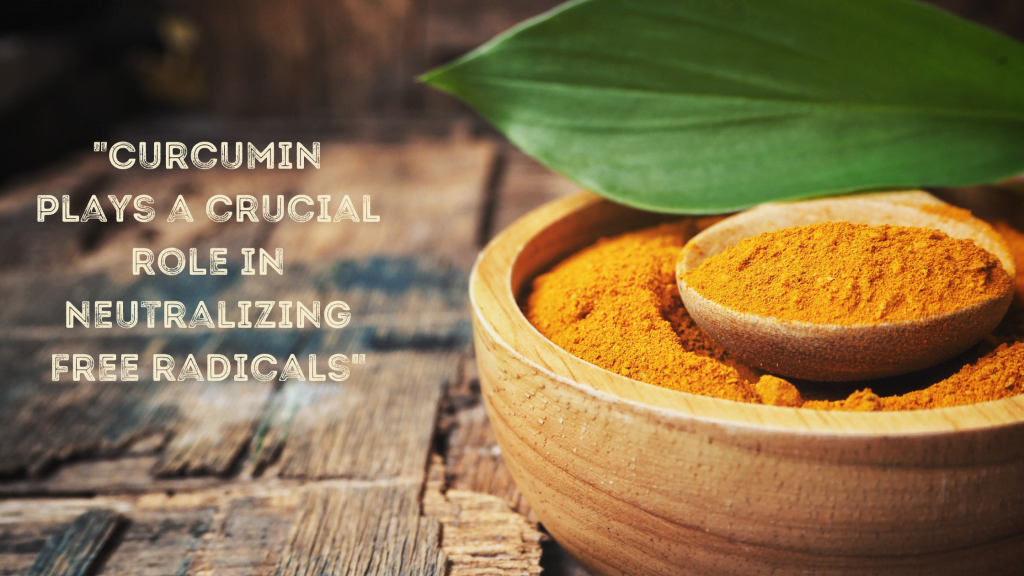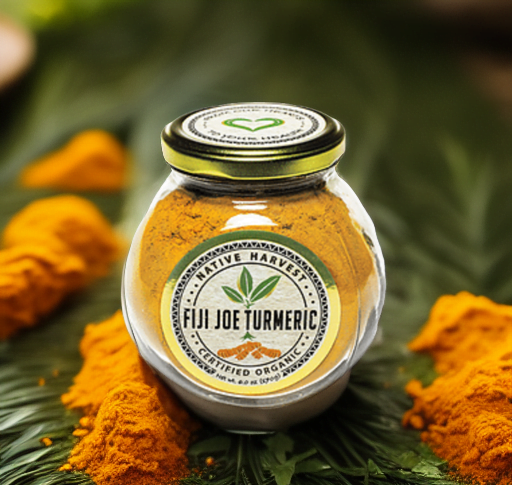For thousands of years, turmeric, a vibrant yellow-orange spice, has been lauded for its countless health benefits. Among these benefits, one that has recently piqued the interest of the scientific community is turmeric’s potential role in combating cancer. But is this just anecdotal evidence, or is there hard science to back it up? This in-depth, comprehensive exploration into the subject will strive to unearth the truth, focusing on the science-backed evidence, and how high-quality products like Fiji Joe Turmeric can be integrated into your health regimen.

The Intriguing Science Behind Turmeric
A Deeper Look into Curcumin and Its Properties
To understand the magic of turmeric, it’s essential to delve into its chemical composition. The star player in turmeric is curcumin, a compound that’s been the subject of extensive scientific research. Curcumin, a polyphenol, is recognized for its myriad health benefits, including antioxidant, anti-inflammatory, and anti-cancer properties.1 It’s this compound that’s largely responsible for turmeric’s glowingly positive reputation in the health and wellness industry.
Unmasking the Antioxidant and Anti-inflammatory Effects of Curcumin
Curcumin’s antioxidant capabilities cannot be overstated. It plays a crucial role in neutralizing free radicals, unstable molecules that can cause extensive cellular damage if left unchecked. This oxidative stress has been linked to a plethora of health conditions, including cancer.2 By acting as a potent antioxidant, curcumin disrupts the destructive path of these free radicals, potentially preventing the onset of various diseases.
In addition, curcumin’s anti-inflammatory prowess is equally noteworthy. Chronic inflammation is often seen as the root of many illnesses, including several types of cancer.3 Curcumin, with its powerful anti-inflammatory properties, can aid in reducing such harmful inflammation, thus potentially reducing the risk of cancer.
The Battle Against Cancer: Turmeric’s Role
Turmeric, especially its component curcumin, exhibits promise in the fight against cancer. Its multi-pronged approach includes:
Stifling Tumour Growth
Research has indicated that curcumin can play a significant role in halting the growth of cancer cells. This is achieved by inhibiting specific enzymes and pathways responsible for tumour progression.4 The potential of curcumin to suppress tumour growth offers hope for its use as a complementary therapy in cancer management.
Curbing Metastasis
One of the more devastating aspects of cancer is its ability to spread from its original location to other parts of the body – a process known as metastasis. Studies have revealed that curcumin can intervene in this process, disrupting the spread of cancer cells by impacting the expression of specific proteins involved in cell adhesion, migration, and invasion.5
Promoting Apoptosis
Apoptosis, or programmed cell death, is a critical process that maintains a balance between cell growth and death. If this balance is disrupted, it can lead to uncontrolled cell growth, a defining characteristic of cancer. Curcumin has demonstrated the ability to induce apoptosis in cancer cells, thereby aiding in the reduction of tumour size and preventing cancer growth.6
Fiji Joe Turmeric: A Prime Player in Your Health Regimen
The Promise of High-Quality Turmeric
Fiji Joe Turmeric is a prime product in the world of turmeric supplements. Sourced from the highest quality turmeric roots, Fiji Joe Turmeric promises a product that’s as close to nature as possible. By opting for Fiji Joe Turmeric, you’re ensuring you receive a potent and pure curcumin content, thereby maximizing the health benefits that you can get from this remarkable spice. This makes it an excellent addition to your health regimen, especially if you’re considering turmeric for its potential cancer-preventing properties.

Enhanced Bioavailability: Getting the Most Out of Turmeric
One of the hurdles that curcumin faces is its poor bioavailability. In simpler terms, it’s not readily absorbed by the body, which can limit its health benefits. However, Fiji Joe Turmeric has addressed this issue head-on. They’ve developed a special formulation that enhances curcumin’s bioavailability, ensuring that your body can absorb and utilize this powerful compound to its maximum potential.
How to Incorporate Fiji Joe Turmeric into Your Life
Recommended Dosage
When it comes to dosage, it’s recommended to take 500-1000 mg of Fiji Joe Turmeric daily for general health benefits. If you’re considering it for specific health concerns like cancer prevention, the dose may be higher. However, always remember that it’s important to consult a healthcare professional before starting any new supplement regimen. They can provide personalized advice that takes into account your overall health, medical history, and specific needs.
Precautions and Potential Interactions
While turmeric is generally safe for most people, it’s not without its potential side effects or interactions. High doses of turmeric can occasionally lead to gastrointestinal discomfort. Moreover, it can interact with certain medications, potentially affecting their efficacy. Always inform your healthcare provider if you plan to include Fiji Joe Turmeric in your diet, especially if you have any underlying health conditions or are taking other medications.
Conclusion
In conclusion, the science-backed truth is that turmeric, with its key compound curcumin, carries significant potential in the fight against cancer. By incorporating a high-quality, highly bioavailable product like Fiji Joe Turmeric in your diet, you could reap a multitude of health benefits, including potentially aiding in cancer prevention. However, it’s crucial to remember that while turmeric can complement traditional cancer treatments, it should not replace them. Always consult your healthcare provider before making any significant changes to your health regimen.
FAQs
Is Fiji Joe Turmeric safe to use?
Yes, Fiji Joe Turmeric is generally safe to use for most people. However, like any supplement, it’s always best to consult with a healthcare provider before starting to use it.
Can Fiji Joe Turmeric replace my cancer treatments?
No, Fiji Joe Turmeric should not replace traditional cancer treatments. It can be used as a complementary approach to help enhance the efficacy of your cancer treatments.
How much Fiji Joe Turmeric should I take for cancer prevention?
The dosage can vary depending on individual health conditions and goals. It’s always best to consult with a healthcare professional for personalized advice.
Does Fiji Joe Turmeric have any side effects?
Turmeric is generally well-tolerated, but in high doses, it can cause side effects like gastrointestinal discomfort. Always start with a low dose to see how your body reacts.
Where can I buy Fiji Joe Turmeric?
You can purchase Fiji Joe Turmeric from our website here or on Amazon.
References:
- Menon VP, Sudheer AR. Antioxidant and anti-inflammatory properties of curcumin. In: The Molecular Targets and Therapeutic Uses of Curcumin in Health and Disease. Aggarwal BB, Surh YJ, Shishodia S, editors. Boston, MA: Springer US; 2007. pp. 105–125. [Google Scholar]
- Aggarwal BB, Kumar A, Bharti AC. Anticancer potential of curcumin: preclinical and clinical studies. Anticancer Res. 2003 Jan-Feb;23(1A):363-98. PMID: 12680238.
- Bengmark S. Curcumin, an atoxic antioxidant and natural NFkappaB, cyclooxygenase-2, lipooxygenase, and inducible nitric oxide synthase inhibitor: a shield against acute and chronic diseases. JPEN J Parenter Enteral Nutr. 2006 Jan-Feb;30(1):45-51. doi: 10.1177/014860710603000145. PMID: 16387899.
- Sharma RA, Gescher AJ, Steward WP. Curcumin: The story so far. Eur J Cancer. 2005 Sep;41(13):1955-68. doi: 10.1016/j.ejca.2005.05.009. PMID: 16081279.
- Anand P, Sundaram C, Jhurani S, Kunnumakkara AB, Aggarwal BB. Curcumin and cancer: an “old-age” disease with an “age-old” solution. Cancer Lett. 2008 Aug 18;267(1):133-64. doi: 10.1016/j.canlet.2008.03.025. Epub 2008 May 6. PMID: 18462866.
- Ravindran J, Prasad S, Aggarwal BB. Curcumin and cancer cells: how many ways can curry kill tumor cells selectively? AAPS J. 2009 Sep;11(3):495-510. doi: 10.1208/s12248-009-9128-x. Epub 2009 Jul 10. PMID: 19590964; PMCID: PMC2758121.



